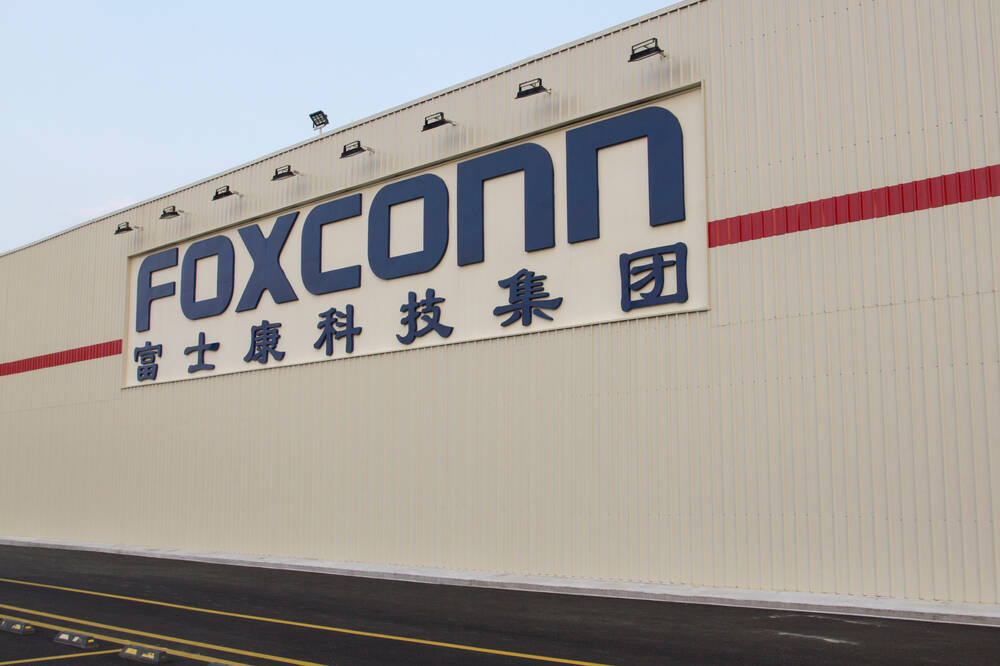Foxconn Hedges Its Bets: US And China Will Make Up, But Diversify Just In Case

Foxconn chairman and CEO Young Liu believes the manufacturing megalith will be able to continue building components in China for use in electronics produced by US companies, despite testy relations between the nations' governments.
Speaking on the BBC's Asia's Tech Titans in his first interview with international media, Liu was enthusiastic about the durability of Foxconn's business model – but admitted that deteriorating US-China relations keep him up at night.
He said planning for geographic diversification of the Foxconn's facilities has commenced in case the geopolitical climate worsens and threatens the gigantic business.
Or perhaps they're more than underway: during the interview Liu acknowledged some Foxconn production lines have already moved to places like Mexico and Vietnam.
"It depends whether the products have national security concerns," said Liu. If so, those "will be the first batch to move." Governments push local businesses to de-risk by reducing reliance on China, and those that are Foxconn customers then ask the Taiwanese titan to move their work, he said.
The CEO thinks that China and the US will eventually "reach a balance" in their relationship, and suggested that if the US wants to stay ahead of China in terms of technology it should "move faster."
The interview also touched on protests and viral video [VIDEO] of workers fleeing the Zhengzhou iPhone factory in the fall of last year.
Liu dismissed the throngs of employees walking back to their villages on foot from the factory as a "transportation issue" amid the spread of COVID variants with increased contagion, exacerbated by the fear of government mandated procedures that left Foxconn's hands tied on quarantines.
If it all happened again, he said he would choose to stop production – even at the risk of angering customers.
- Taiwan asks US if it could chill out on the anti-China rhetoric
- Foxconn workers protest over pay and lockdowns at iPhone factory in China
- Meet TeamT5, the Taiwanese infosec outfit taking on Beijing and defeating its smears
- Micron chips in $600M for China memory facility despite Beijing sanctions
As for the future, Foxconn is betting on EVs.
"The reason why we think this a great opportunity for Foxconn is in the past most cars are made with mechanical stuff." He said relatively few so-called EE parts – that is, sensors, relays, fuses etc. – go in internal combustion cars, "but with EV cars, there are lots of EE components."
The firm sees a gap in the market when it comes to contract design in the automotive industry. That manufacturing will also occur in places outside of China – like Ohio and, soon, in Thailand and India.
Liu called regionalized production of cars "natural."
"It doesn’t make sense for you to make and ship this very big and heavy thing to another country," said the chairman. ®
From Chip War To Cloud War: The Next Frontier In Global Tech Competition
The global chip war, characterized by intense competition among nations and corporations for supremacy in semiconductor ... Read more
The High Stakes Of Tech Regulation: Security Risks And Market Dynamics
The influence of tech giants in the global economy continues to grow, raising crucial questions about how to balance sec... Read more
The Tyranny Of Instagram Interiors: Why It's Time To Break Free From Algorithm-Driven Aesthetics
Instagram has become a dominant force in shaping interior design trends, offering a seemingly endless stream of inspirat... Read more
The Data Crunch In AI: Strategies For Sustainability
Exploring solutions to the imminent exhaustion of internet data for AI training.As the artificial intelligence (AI) indu... Read more
Google Abandons Four-Year Effort To Remove Cookies From Chrome Browser
After four years of dedicated effort, Google has decided to abandon its plan to remove third-party cookies from its Chro... Read more
LinkedIn Embraces AI And Gamification To Drive User Engagement And Revenue
In an effort to tackle slowing revenue growth and enhance user engagement, LinkedIn is turning to artificial intelligenc... Read more

